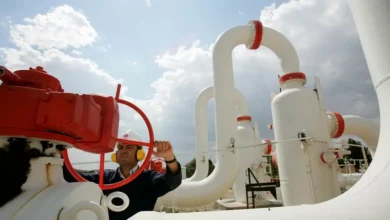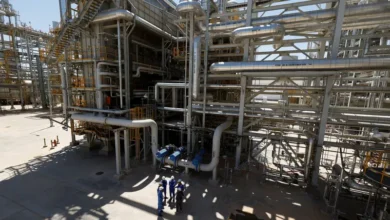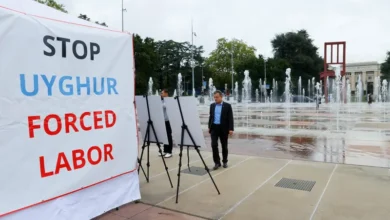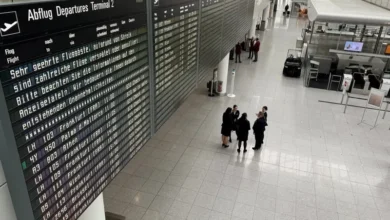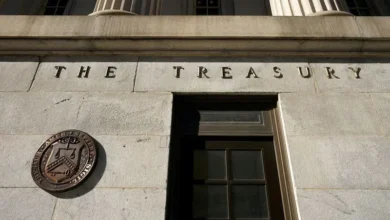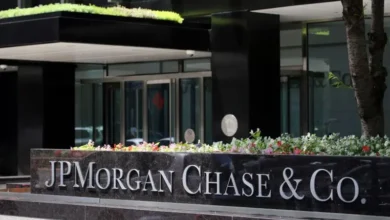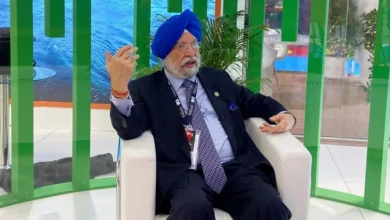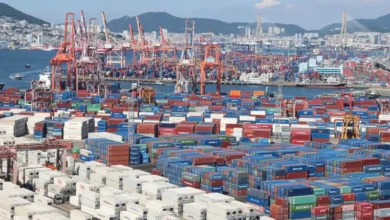Australia gas strike delayed until Friday as talks continue
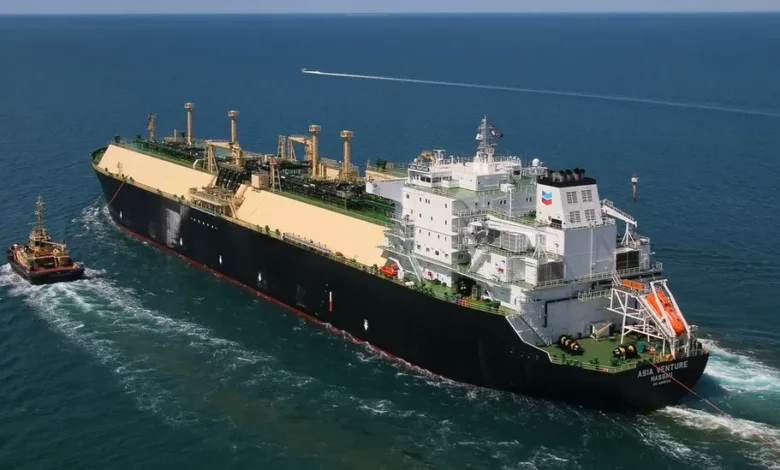
A strike planned to start at two major liquefied natural gas (LNG) facilities in Australia has been delayed as talks between Chevron and unions continue.
The series of work stoppages were due to start from Thursday in the dispute over pay and conditions.
Workers will now delay their strike action until 06:00 on Friday Perth time (22:00 GMT Thursday).
Concerns about the stoppages recently pushed up prices in natural gas markets.
“We will continue to work through the bargaining process as we seek outcomes that are in the interests of both employees and the company,” a Chevron Australia spokesperson said.
The US energy giant’s Gorgon and Wheatstone plants in Western Australia account for more than 5% of global LNG capacity.
Australia’s industrial arbitrator, the Fair Work Commission, has been hosting mediation talks between Chevron and the Offshore Alliance – which is a partnership of two unions representing energy workers.
Energy analyst Saul Kavonic told the BBC that he did not believe the first round of stoppages would have a major impact on gas supplies.
However, the threat of rolling full stoppages from 14 September could potentially have an impact on global energy markets.
“In the unlikely event the situation escalates to full stoppages, then around 6% of global supply would come offline, which could see prices spike if the strikes were to be prolonged into northern hemisphere winter,” Mr Kavonic said.
Tim Harcourt from the Institute for Public Policy and Governance at the University of Technology Sydney said he does not expect a protracted strike.
“Generally, Australian disputes don’t last very long because the Fair Work Commission is designed to intervene very early so we don’t have the long disputes you get in the USA or the UK,” he said.
“Having said that, because it’s a significant industry with 500 workers, it could have some impact on global supply. But I don’t think we’re at that stage yet.”
Russia’s invasion of Ukraine last year sent oil and gas prices soaring, leading to a sharp rise in energy bills for homes and businesses.
Wholesale energy prices have now fallen from the highs but this week oil prices rose after Saudi Arabia and Russia extended their cuts to supplies to the end of the year.
On Tuesday, Brent crude closed above $90 a barrel for the first time since November.
Russia has also slashed supplies of natural gas to Europe, which led countries to seek out alternative sources of energy. Many countries are relying on LNG to fill the gap.
Australia is one of the world’s largest exporters of LNG, along with Qatar and the US, and its supplies have helped to cool global energy prices.
LNG is methane, or methane mixed with ethane, cleansed of impurities and cooled to approximately -160C.
This turns the gas into a liquid and it can then be shipped in pressurised tankers.
At its destination, LNG is turned back into gas and used, like any other natural gas, for heating, cooking and power.
